

Share
20th February 2015
02:06pm GMT

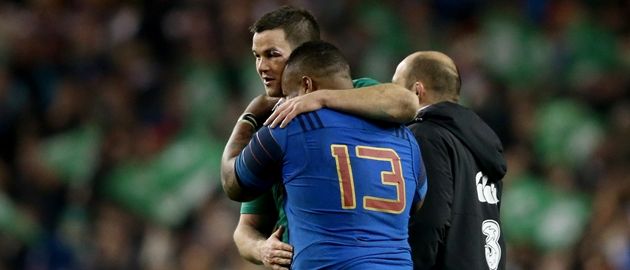 Healey believes that France's go-for-broke strategy is the way to usurp Ireland. Philippe Saint-André's side prospered with a refreshed front row and Morgan Parra opting to pass rather than kick. What must be remembered, though, is Ireland dominated the contest for the first hour and should have been out of sight.
In the final 10 minutes, France had all the possession they needed but Ireland look serene; unthreatened. Ireland are far too dogged at maul, lineout and breakdown time to allow England test this ball-in-hand strategy from the off.
Healey believes that France's go-for-broke strategy is the way to usurp Ireland. Philippe Saint-André's side prospered with a refreshed front row and Morgan Parra opting to pass rather than kick. What must be remembered, though, is Ireland dominated the contest for the first hour and should have been out of sight.
In the final 10 minutes, France had all the possession they needed but Ireland look serene; unthreatened. Ireland are far too dogged at maul, lineout and breakdown time to allow England test this ball-in-hand strategy from the off.
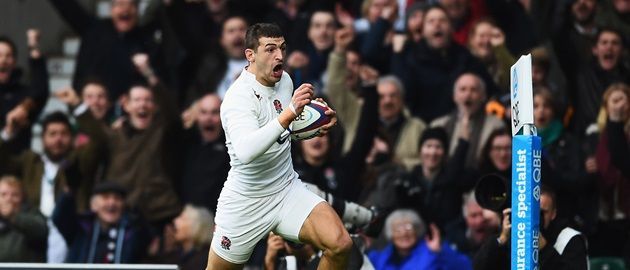 Jonny May is pacy but, as he demonstrated with two spurned chances against Ireland last year, far from clinical at Test level. Anthony Watson looks a decent prospect and is in form for Bath. Still, he has one Test try in six matches. Mike Brown is a fantastic player but may miss the game, in Dublin, after picking up a concussion. Compare that to Simon Zebo, Tommy Bowe and Rob Kearney - English potential versus proven Irish match-winners.
Jonny May is pacy but, as he demonstrated with two spurned chances against Ireland last year, far from clinical at Test level. Anthony Watson looks a decent prospect and is in form for Bath. Still, he has one Test try in six matches. Mike Brown is a fantastic player but may miss the game, in Dublin, after picking up a concussion. Compare that to Simon Zebo, Tommy Bowe and Rob Kearney - English potential versus proven Irish match-winners.
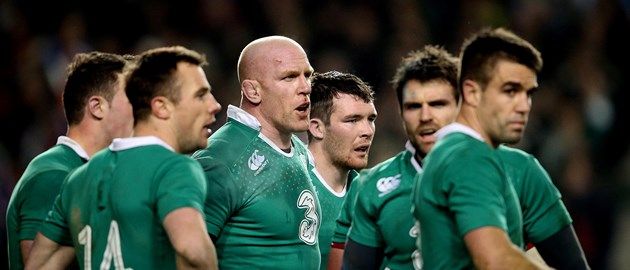 Just about the only Test time to ever achieve this mighty feat has been New Zealand and even they have struggled to contain the Irish lock at times. O'Connell was superb in the Guinness Series and plagued both Italy and France in the loose and the lineout. A noble notion by Healy but so, so much easier said than done.
Just about the only Test time to ever achieve this mighty feat has been New Zealand and even they have struggled to contain the Irish lock at times. O'Connell was superb in the Guinness Series and plagued both Italy and France in the loose and the lineout. A noble notion by Healy but so, so much easier said than done.
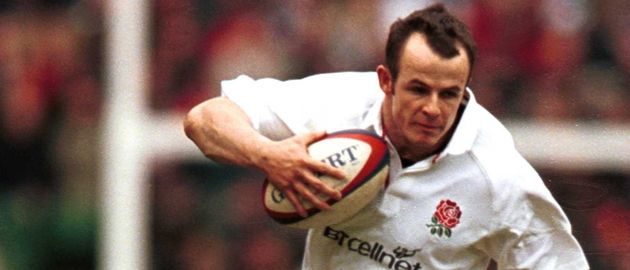 A win for England would put them in pole position for the Slam as they have Scotland and France at home in their remaining fixtures.
To go unbeaten in a World Cup year would then require something along the lines of this: Ireland (away), Scotland, France, France, France (away), Ireland (away), Fiji, Wales, Australia, Uruguay and, if they get into the knock-out stages, Scotland, New Zealand, and, wishfully thinking, Ireland in the final.
If England can do all that, we will catch a flight across the Irish Sea and present Austin with a SportsJOE medal.
A win for England would put them in pole position for the Slam as they have Scotland and France at home in their remaining fixtures.
To go unbeaten in a World Cup year would then require something along the lines of this: Ireland (away), Scotland, France, France, France (away), Ireland (away), Fiji, Wales, Australia, Uruguay and, if they get into the knock-out stages, Scotland, New Zealand, and, wishfully thinking, Ireland in the final.
If England can do all that, we will catch a flight across the Irish Sea and present Austin with a SportsJOE medal.
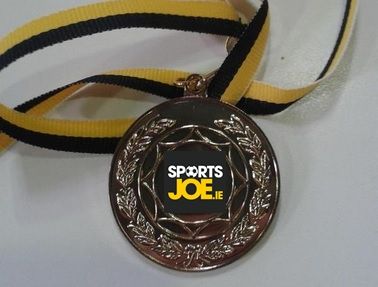
Explore more on these topics: